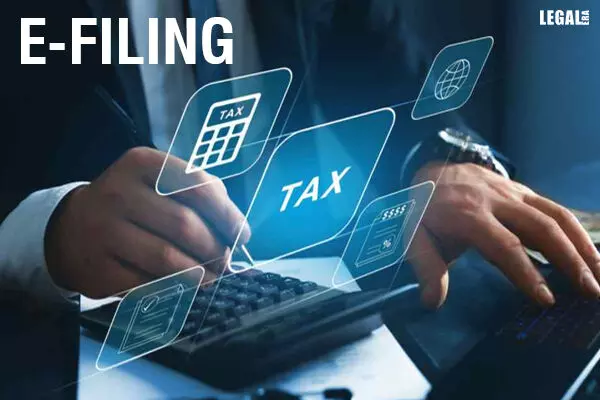- Home
- News
- Articles+
- Aerospace
- Agriculture
- Alternate Dispute Resolution
- Banking and Finance
- Bankruptcy
- Book Review
- Bribery & Corruption
- Commercial Litigation
- Competition Law
- Conference Reports
- Consumer Products
- Contract
- Corporate Governance
- Corporate Law
- Covid-19
- Cryptocurrency
- Cybersecurity
- Data Protection
- Defence
- Digital Economy
- E-commerce
- Employment Law
- Energy and Natural Resources
- Entertainment and Sports Law
- Environmental Law
- FDI
- Food and Beverage
- Health Care
- IBC Diaries
- Insurance Law
- Intellectual Property
- International Law
- Know the Law
- Labour Laws
- Litigation
- Litigation Funding
- Manufacturing
- Mergers & Acquisitions
- NFTs
- Privacy
- Private Equity
- Project Finance
- Real Estate
- Risk and Compliance
- Technology Media and Telecom
- Tributes
- Zoom In
- Take On Board
- In Focus
- Law & Policy and Regulation
- IP & Tech Era
- Viewpoint
- Arbitration & Mediation
- Tax
- Student Corner
- AI
- ESG
- Gaming
- Inclusion & Diversity
- Law Firms
- In-House
- Rankings
- E-Magazine
- Legal Era TV
- Events
- News
- Articles
- Aerospace
- Agriculture
- Alternate Dispute Resolution
- Banking and Finance
- Bankruptcy
- Book Review
- Bribery & Corruption
- Commercial Litigation
- Competition Law
- Conference Reports
- Consumer Products
- Contract
- Corporate Governance
- Corporate Law
- Covid-19
- Cryptocurrency
- Cybersecurity
- Data Protection
- Defence
- Digital Economy
- E-commerce
- Employment Law
- Energy and Natural Resources
- Entertainment and Sports Law
- Environmental Law
- FDI
- Food and Beverage
- Health Care
- IBC Diaries
- Insurance Law
- Intellectual Property
- International Law
- Know the Law
- Labour Laws
- Litigation
- Litigation Funding
- Manufacturing
- Mergers & Acquisitions
- NFTs
- Privacy
- Private Equity
- Project Finance
- Real Estate
- Risk and Compliance
- Technology Media and Telecom
- Tributes
- Zoom In
- Take On Board
- In Focus
- Law & Policy and Regulation
- IP & Tech Era
- Viewpoint
- Arbitration & Mediation
- Tax
- Student Corner
- AI
- ESG
- Gaming
- Inclusion & Diversity
- Law Firms
- In-House
- Rankings
- E-Magazine
- Legal Era TV
- Events
Karnataka High Court Unveils E-Filing Platform 3.0 Offers: Ready-Made Templates for Pleadings, Online Oath & More

Karnataka High Court Unveils E-Filing Platform 3.0 Offers: Ready-Made Templates for Pleadings, Online Oath & More
The Karnataka High Court has introduced a new version of E-filing 3.0 in its continuous efforts to enhance efficiency and accessibility within the legal system. With the latest advancement, the Court aims to promote a paperless Court environment, streamlining the judicial process and ensuring a faster and more effective dispensation of justice.
The E-filing 3.0 platform incorporates several innovative features that have been meticulously designed to simplify the filing process and augment the overall user experience. The platform can be accessible through: https://filing.ecourts.gov.in/pdedev/
Below are the main characteristics of E-filing 3.0:
1. Ready-made templates: Enables creation of pleadings from the available several templates. It helps advocates to quickly draft pleadings.
2. Online submission of vakalath: Enables online submission of Vakalath by the clients to the advocates and advocates further accept it in the e-Filing software. This feature aids to authenticate and let’s advocate handshake with the clients for exchanging information electronically.
3. E-signing: Enables the client to e-Sign the document uploaded by the advocate from the comfort of home or the client's office. Multiple stakeholders can e-Sign a single document through their respective logins.
4. E-Payment: Enables online payment of court fees, judicial deposits, fines, etc. by integrating respective State Treasury payment gateway with the e-Fi software. In addition, the service of online payment for the use of an adhesive court fee stamp affixed on the application is also provided through the Court fee wallet- https://pay.ecourts.gov.in/epay/
5. Online Video Recording of Oath: Enables online video recording of Oath once the documents are e-Signed by clients and verified by advocates.
6. Application Filing: Enables filing of several applications by the advocates for different cases simultaneously at any given point of time. The facility is also available to select cases and choose the application templates.
7. Portfolio Management: Enables management of new as well as existing cases through portfolio and case planner. The facilities to search cases, add events to the case calendar and add or delete cases from the portfolio are provided. Cases can also be imported from or exported to the eCourts services mobile app.
8. My Partners: Enables the addition of colleagues, and juniors as partners so that cases can also be assigned to them. This helps partner advocates to sign vakalath, pleadings and submit applications collectively.
9. Dashboard: Enables at-a-glance status of all the completed and pending activities related to cases in the portfolio along with the monthly calendar.
Registrar-computers, N G Dinesh enumerated the advantages of e-filing:
(i) Saves time, money, and travel of advocates and clients;
(ii) Obviate the need to visit the court physically;
(iii) Reduces the need for meetings between clients and advocates;
(iv) Automatic digitization of case records and positive impact on the environment by reducing paper footprint.
The notification issued by Registrar General K S Bharat Kumar urges the users to acquaint themselves with the Karnataka Electronic Filing (e-Filing) Rules, 2021. It also advises the Government Departments of both the Centre and State to take note of the notification dated 23 December, 2021 which mandated compulsory e-Filing of cases and documents by the Government with effect from 1 January, 2022.
Further it said “All are requested to make use of the new and innovative features available in the e-Filing 3.0 version to enable the Judicial System to have a paperless environment.”


